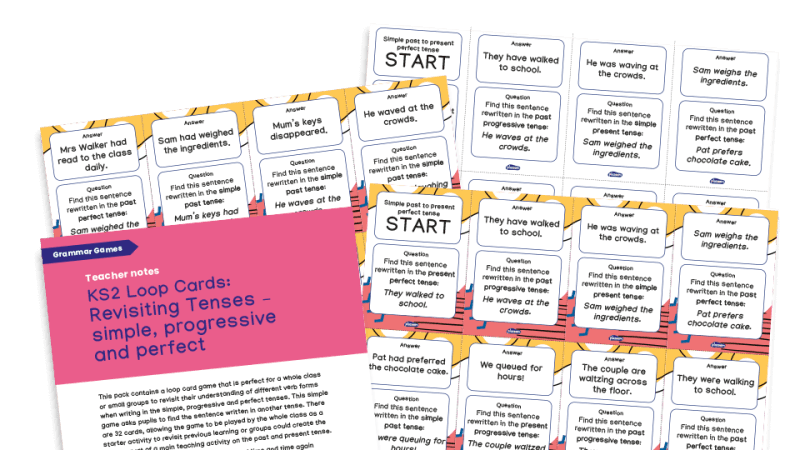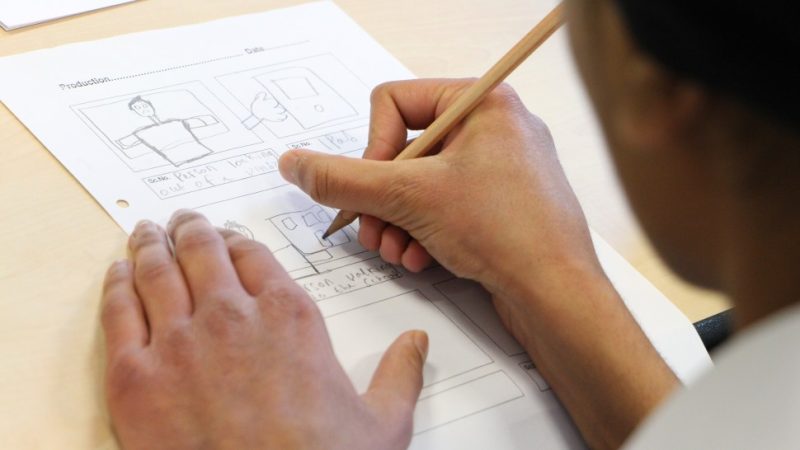Reading journal ideas – creative ways to reflect on books in the classroom

From scripting film trailers to designing covers, how pupils are exploring the wonders of stories every day

As a big reader and book blogger myself, I am a massive fan of encouraging my children to think about and reflect on what they’re reading. One of the things I inherited when I moved into Year 6 was reading journals, and I have embraced them, but I’ve also changed them slightly based on my own vision.
I wanted to make the journals an integral part of our everyday lives in the class and become something that we shared and enjoyed together. It’s so important that stories are part of school life and I really think reading journals are helping to encourage the joy of books in my classroom.
How to keep a reading journal
Each child has a reading journal – a jotter-sized book – and every half term, I stick in a new set of activities. I expect a certain number of activities to be completed, but this changes half term by half term, and child by child.
You know your pupils; you know (and they should know) what is expected of them. For example, my desired number of activities completed this half term is five – I know there are some children who will meet this (as I expect them to) and I know there will be some children who, for a range of reasons, will complete only three or four.
I know my children well and I have high expectations of them all, so five activities in a seven-week half term is more than doable.
Every afternoon after lunch, we have a 15-minute reading slot. Without fail, every day, we all read (including me!). In those 15 minutes, pupils may choose to read, or, if they’ve finished a book, they can use that time to complete a reading journal task.
Once they’ve completed the activity, they pop it in the box for me or my TA to mark.
Tasks can vary massively, but all journal activities are designed to make children think a little deeper about what they’re reading. It could be anything from ‘Write a letter to the author about your thoughts’ to ‘Design a new front cover’, or even ‘Write the voice-over for a film trailer based on the book’.
Each child gets the same sheet of activities at the start of a half term and we have the same high expectations for each child. What they produce based on that task can vary a lot, too!
As you can imagine, some activities take longer than others and some are more involved, but the children can complete the activities in any order they wish. I ask pupils not to do the same activity more than once, though, so I can see a range of responses to their tasks.
Reading for pleasure primary school
One thing that’s important to me is that children are allowed to read books for the enjoyment of reading. With that in mind, they are not expected to do a task on every book they finish. However, if my children do choose to do an activity around every book, that’s fine with me.
I think these reading journal tasks have added an abundance of chances for pupils to think and talk about the books they’re reading. It’s made them more conscious of the authors, the genres and the types of titles they read.
They complete journals on all kinds of books, including graphic novels, novels, non-fiction and poetry. There’s no limit to the journals, and you can get out of them whatever you and your class are willing to put into them.
I love reading them, too, because it really helps me to see what the children have taken from the books: they open conversations about stories; they help me recommend books to pupils; and they allow my children and I an opportunity to make reading an integral part of our classroom life.
It really is that simple. Do they need some training? Yes. Do they need reminders about expectations? Yes. But make it a habit and they will embrace it.
I’ve gone from having a few reluctant readers (not a phrase I like) to having a class of 31 children who read every single day. I hold this 15 minutes of daily reading very dear – and it’s something I think every classroom should have.
I would be MUCH aggrieved if someone tried to take it away from me!
Steph Elliott is a Y6 class teacher in a one form entry school in Newcastle. She has a passion for maths and all things books. Follow Steph on Twitter @eenalol











